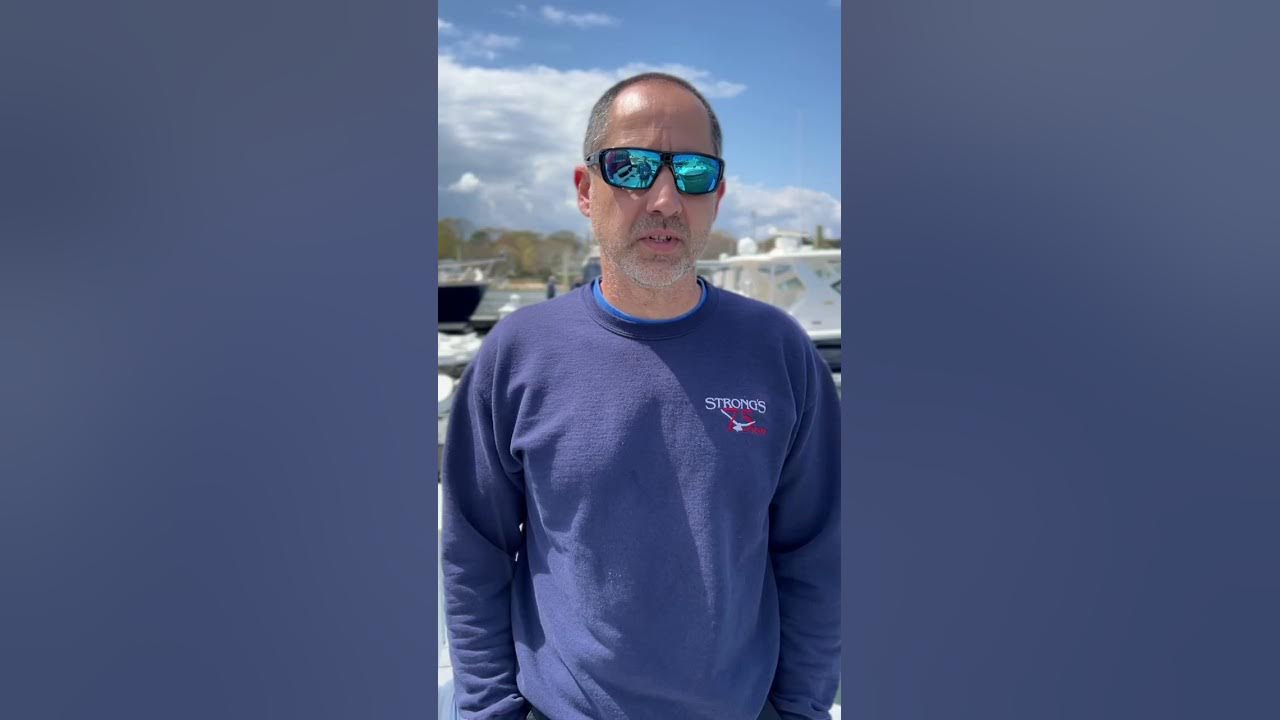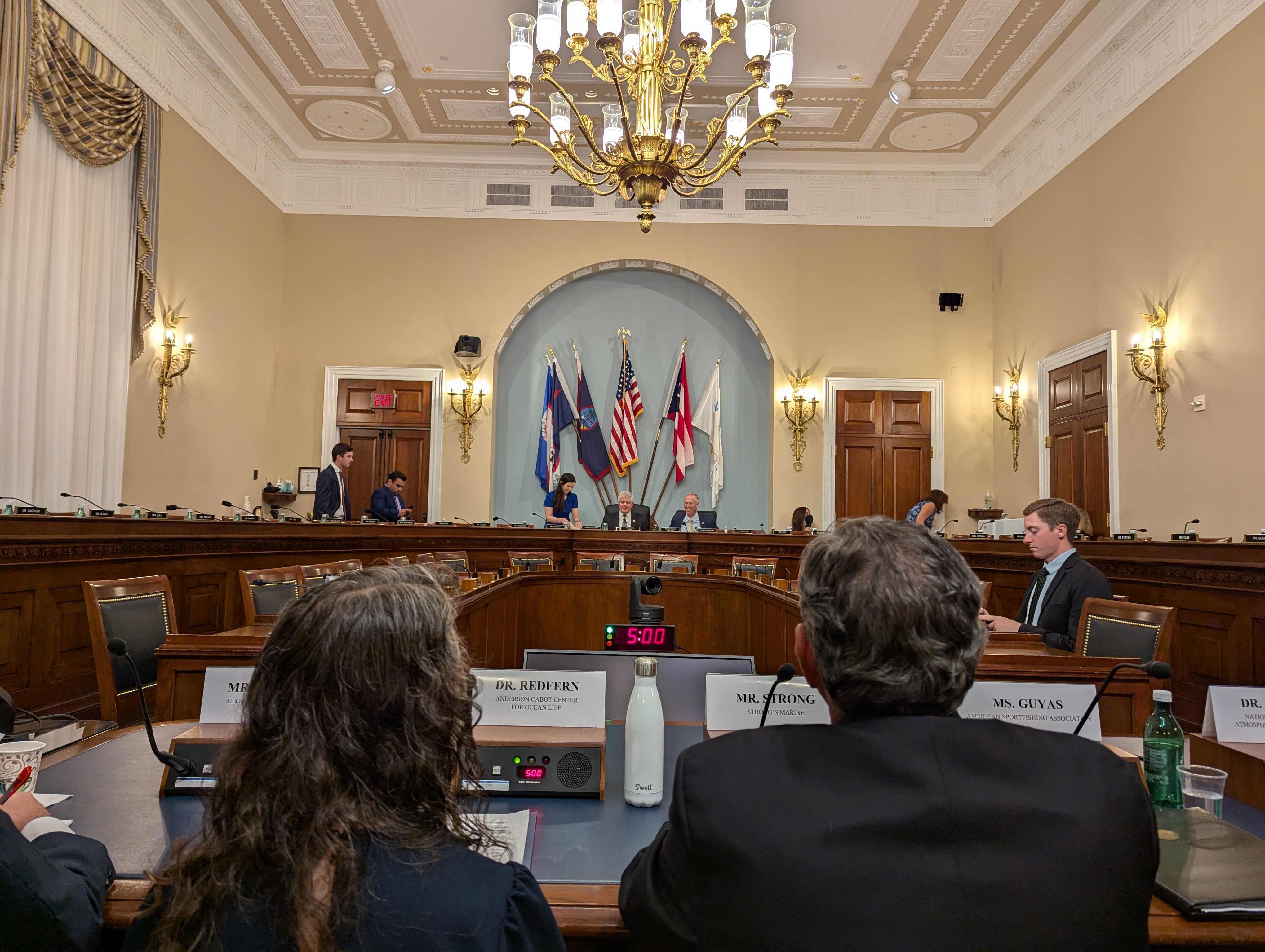Right Whale Speed Rule Withdrawn, Preserving Boater & Angler Access

Strong's Marine Applauds Withdrawal of Right Whale Vessel Speed Rule, Reaffirms Commitment to Advocacy and Boater Access.
Strong’s Marine is pleased to share that the National Marine Fisheries Service (NMFS) has officially withdrawn the proposed North Atlantic Right Whale Vessel Strike Reduction Rule. Initially proposed in August 2022, this rule would have severely restricted boating access along the East Coast, imposing a 10-knot speed limit on vessels 35 feet and larger. For reference, 10 knots is approximately equivalent to 11.5 mph. Such regulations would have negatively impacted recreational boaters, anglers, and marine businesses.
This is a major win for the boating community and coastal economies. Strong's Marine has been a large part of advocacy efforts due to Jeff Strong's dedication and participation testifying Washington as well as his contributions to MRAA, Marine Retailers Association of the America,.
“After working tirelessly to educate decisionmakers on the flawed logic of the proposed Right Whale Vessel Speed Rule and the negative impact it would have on marine retailers and the recreational boating industry at large, we are pleased to see that the rule has ultimately been withdrawn,” said Matt Gruhn, President of the MRAA.
“We hope that the withdrawal of this rule will provide the industry with the opportunity to work with the federal government to develop and invest in technological solutions to ensure that recreational boaters and anglers can co-exist with marine mammals while on America’s oceans, protecting both access to our marine resources and endangered aquatic species.” (Source: MRAA)
Jeff Strong’s Leadership in Advocacy
Strong’s Marine has long been committed to advocating for the interests of boaters and marine businesses. Jeff Strong’s dedication to this cause was recently recognized when he received the prestigious Dealer Ambassador Award by the MRAA for his commitment to marine advocacy. As part of his efforts, Jeff Strong traveled to Washington, D.C., to testify before Congress on Capitol Hill regarding the MAPOceans Act and the proposed Right Whale Vessel Speed Rule. His testimony highlighted the rule’s flawed assumptions and the devastating economic impact it would have had on the marine industry and coastal communities.

Industry-Wide Advocacy Leads to Victory
The withdrawal of this rule comes after two years of persistent industry efforts to push back against the proposal. The MRAA, alongside Strong’s Marine and other industry partners, took every opportunity to highlight the rule’s negative impacts. The recreational boating industry argued that the proposed rule failed to differentiate between large oceangoing vessels and small recreational boats. Additionally, it lacked a comprehensive economic impact analysis and relied on questionable data.
Jeff Strong also noted in his testimony that when a boat planes at higher speeds, its hull lifts, reducing its draft and lowering the risk of striking whales. Therefore, slower-moving boats at the proposed 11.5 mph sit deeper in the water, increasing the chance of contact with marine life. Science-based regulations should consider vessel behavior rather than imposing broad speed limits. By standing together, the industry successfully demonstrated that responsible boating and marine conservation can coexist without unnecessarily restricting access.
A Shift Toward Technology-Based Solutions
The recreational boating industry depends on clean water, thriving fisheries, and access to both, which is why MRAA and dealers like Strong's Marine are dedicated to supporting the conservation of endangered marine mammals like the North Atlantic Right Whale as we move forward.
However, we can acknowledge how to protect these animals without forfeiting boating rights and affecting our local economies. Currently, there are several promising technologies, such as satellite imaging, passive acoustic monitoring, and infrared sensors, that can assist in detecting the North Atlantic Right Whale and provide crucial information to boaters.
Additionally, the marine industry is keen on utilizing whale location data that can be compiled and shared with mariners to help them avoid marine mammals when detected. The MRAA and the broader recreational boating industry plan to expand on our previous efforts with technological solutions, aiming to equip mariners with the ability to make informed boating decisions based on real-time location data for marine mammals.
Looking Ahead: Strong’s Marine’s Commitment to Advocacy
The battle for responsible marine regulations is far from over. Strong’s Marine remains dedicated to advocating for policies that balance environmental protection with boater access. As the industry shifts focus toward technological solutions, Jeff Strong and his team will continue to play an active role in ensuring that the needs of the recreational boating community are represented at the highest levels of government.
For updates on advocacy efforts or to learn more about Strong’s Marine’s commitment to the boating community. We thank all our partners and customers for their continued support in preserving access to our nation’s waterways while promoting responsible boating practices.


